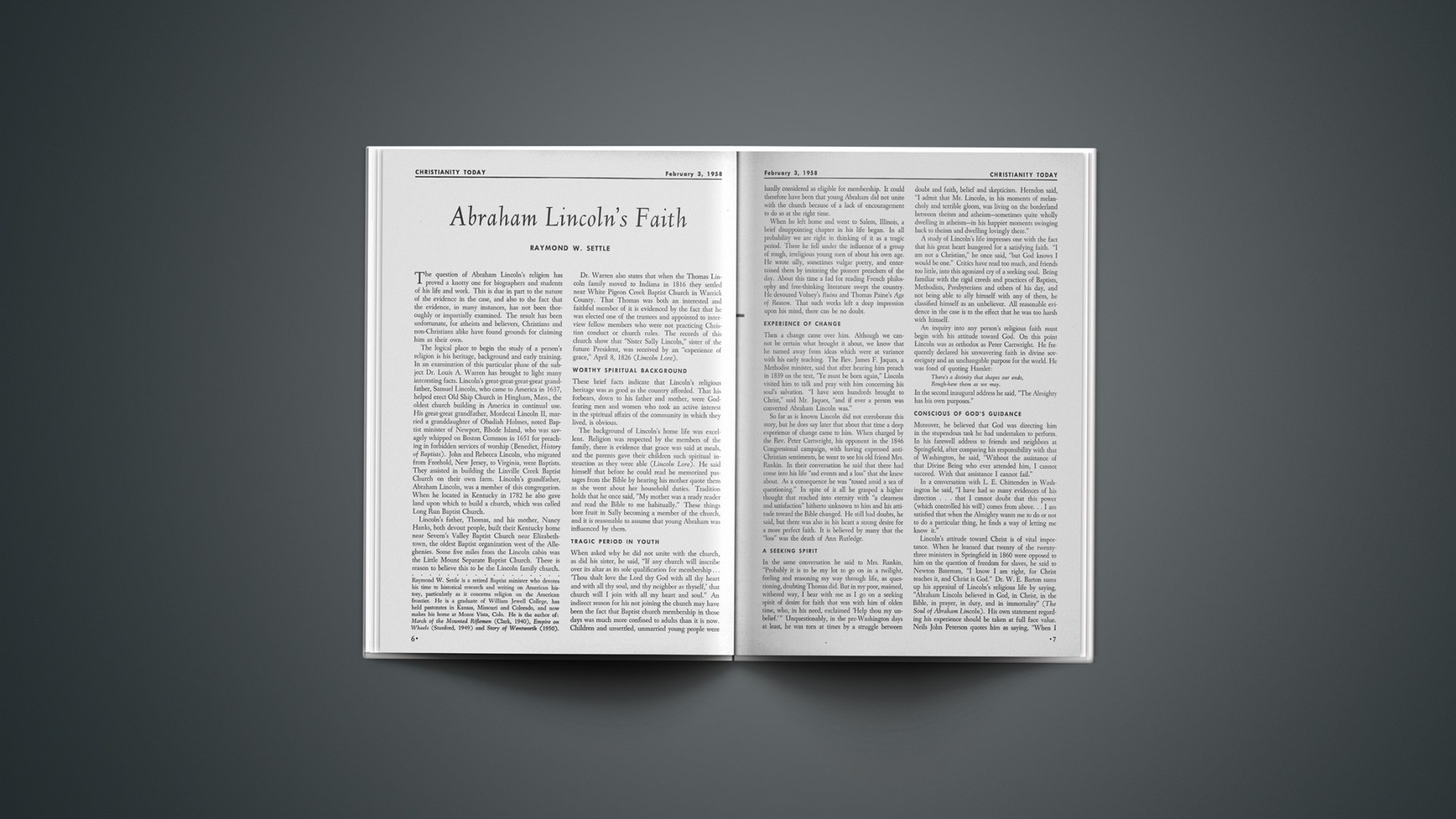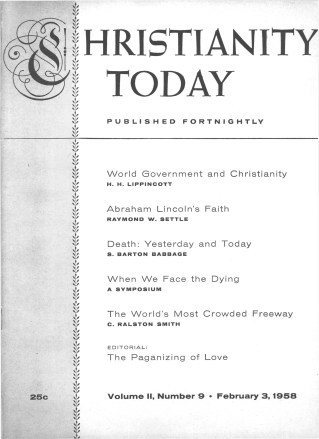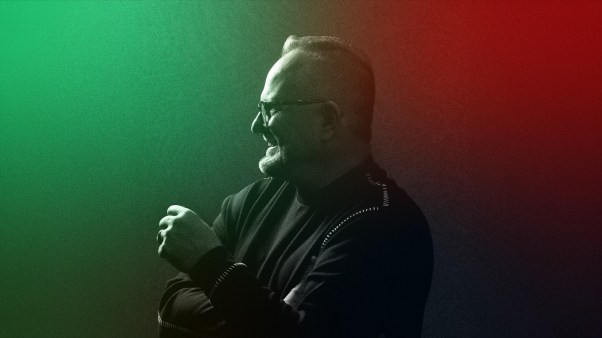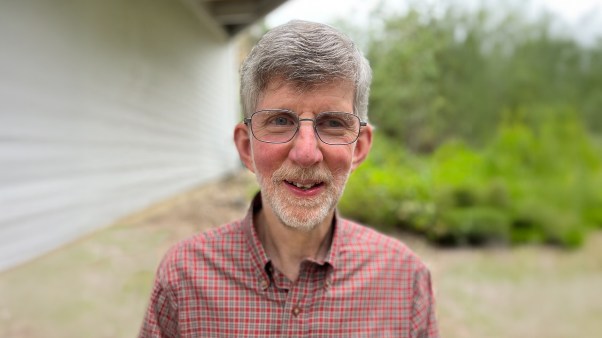The question of Abraham Lincoln’s religion has proved a knotty one for biographers and students of his life and work. This is due in part to the nature of the evidence in the case, and also to the fact that the evidence, in many instances, has not been thoroughly or impartially examined. The result has been unfortunate, for atheists and believers, Christians and non-Christians alike have found grounds for claiming him as their own.
The logical place to begin the study of a person’s religion is his heritage, background and early training. In an examination of this particular phase of the subject Dr. Louis A. Warren has brought to light many interesting facts. Lincoln’s great-great-great-great grandfather, Samuel Lincoln, who came to America in 1637, helped erect Old Ship Church in Hingham, Mass., the oldest church building in America in continual use. His great-great grandfather, Mordecai Lincoln II, married a granddaughter of Obadiah Holmes, noted Baptist minister of Newport, Rhode Island, who was savagely whipped on Boston Common in 1651 for preaching in forbidden services of worship (Benedict, History of Baptists). John and Rebecca Lincoln, who migrated from Freehold, New Jersey, to Virginia, were Baptists. They assisted in building the Linville Creek Baptist Church on their own farm. Lincoln’s grandfather, Abraham Lincoln, was a member of this congregation. When he located in Kentucky in 1782 he also gave land upon which to build a church, which was called Long Run Baptist Church.
Lincoln’s father, Thomas, and his mother, Nancy Hanks, both devout people, built their Kentucky home near Severn’s Valley Baptist Church near Elizabethtown, the oldest Baptist organization west of the Alleghenies. Some five miles from the Lincoln cabin was the Little Mount Separate Baptist Church. There is reason to believe this to be the Lincoln family church.
Dr. Warren also states that when the Thomas Lincoln family moved to Indiana in 1816 they settled near White Pigeon Creek Baptist Church in Warrick County. That Thomas was both an interested and faithful member of it is evidenced by the fact that he was elected one of the trustees and appointed to interview fellow members who were not practicing Christian conduct or church rules. The records of this church show that “Sister Sally Lincoln,” sister of the future President, was received by an “experience of grace,” April 8, 1826 (Lincoln Lore).
Worthy Spiritual Background
These brief facts indicate that Lincoln’s religious heritage was as good as the country afforded. That his forbears, down to his father and mother, were God-fearing men and women who took an active interest in the spiritual affairs of the community in which they lived, is obvious.
The background of Lincoln’s home life was excellent. Religion was respected by the members of the family, there is evidence that grace was said at meals, and the parents gave their children such spiritual instruction as they were able (Lincoln Lore). He said himself that before he could read he memorized passages from the Bible by hearing his mother quote them as she went about her household duties. Tradition holds that he once said, “My mother was a ready reader and read the Bible to me habitually.” These things bore fruit in Sally becoming a member of the church, and it is reasonable to assume that young Abraham was influenced by them.
Tragic Period In Youth
When asked why he did not unite with the church, as did his sister, he said, “If any church will inscribe over its altar as its sole qualification for membership … ‘Thou shalt love the Lord thy God with all thy heart and with all thy soul, and thy neighbor as thyself,’ that church will I join with all my heart and soul.” An indirect reason for his not joining the church may have been the fact that Baptist church membership in those days was much more confined to adults than it is now. Children and unsettled, unmarried young people were hardly considered as eligible for membership. It could therefore have been that young Abraham did not unite with the church because of a lack of encouragement to do so at the right time.
When he left home and went to Salem, Illinois, a brief disappointing chapter in his life began. In all probability we are right in thinking of it as a tragic period. There he fell under the influence of a group of rough, irreligious young men of about his own age. He wrote silly, sometimes vulgar poetry, and entertained them by imitating the pioneer preachers of the day. About this time a fad for reading French philosophy and free-thinking literature swept the country. He devoured Volney’s Ruins and Thomas Paine’s Age of Reason. That such works left a deep impression upon his mind, there can be no doubt.
Experience Of Change
Then a change came over him. Although we cannot be certain what brought it about, we know that he turned away from ideas which were at variance with his early teaching. The Rev. James F. Jaques, a Methodist minister, said that after hearing him preach in 1839 on the text, “Ye must be born again,” Lincoln visited him to talk and pray with him concerning his soul’s salvation. “I have seen hundreds brought to Christ,” said Mr. Jaques, “and if ever a person was converted Abraham Lincoln was.”
So far as is known Lincoln did not corroborate this story, but he does say later that about that time a deep experience of change came to him. When charged by the Rev. Peter Cartwright, his opponent in the 1846 Congressional campaign, with having expressed anti-Christian sentiments, he went to see his old friend Mrs. Rankin. In their conversation he said that there had come into his life “sad events and a loss” that she knew about. As a consequence he was “tossed amid a sea of questioning.” In spite of it all he grasped a higher thought that reached into eternity with “a clearness and satisfaction” hitherto unknown to him and his attitude toward the Bible changed. He still had doubts, he said, but there was also in his heart a strong desire for a more perfect faith. It is believed by many that the “loss” was the death of Ann Rutledge.
A Seeking Spirit
In the same conversation he said to Mrs. Rankin, “Probably it is to be my lot to go on in a twilight, feeling and reasoning my way through life, as questioning, doubting Thomas did. But in my poor, maimed, withered way, I bear with me as I go on a seeking spirit of desire for faith that was with him of olden time, who, in his need, exclaimed ‘Help thou my unbelief.’ ” Unquestionably, in the pre-Washington days at least, he was torn at times by a struggle between doubt and faith, belief and skepticism. Herndon said, “I admit that Mr. Lincoln, in his moments of melancholy and terrible gloom, was living on the borderland between theism and atheism—sometimes quite wholly dwelling in atheism—in his happier moments swinging back to theism and dwelling lovingly there.”
A study of Lincoln’s life impresses one with the fact that his great heart hungered for a satisfying faith. “I am not a Christian,” he once said, “but God knows I would be one.” Critics have read too much, and friends too little, into this agonized cry of a seeking soul. Being familiar with the rigid creeds and practices of Baptists, Methodists, Presbyterians and others of his day, and not being able to ally himself with any of them, he classified himself as an unbeliever. All reasonable evidence in the case is to the effect that he was too harsh with himself.
An inquiry into any person’s religious faith must begin with his attitude toward God. On this point Lincoln was as orthodox as Peter Cartwright. He frequently declared his unwavering faith in divine sovereignty and an unchangable purpose for the world. He was fond of quoting Hamlet:
There’s a divinity that shapes our ends,
Rough-hew them as we may.
In the second inaugural address he said, “The Almighty has his own purposes.”
Conscious Of God’S Guidance
Moreover, he believed that God was directing him in the stupendous task he had undertaken to perform. In his farewell address to friends and neighbors at Springfield, after comparing his responsibility with that of Washington, he said, “Without the assistance of that Divine Being who ever attended him, I cannot succeed. With that assistance I cannot fail.”
In a conversation with L. E. Chittenden in Washington he said, “I have had so many evidences of his direction … that I cannot doubt that this power (which controlled his will) comes from above.… I am satisfied that when the Almighty wants me to do or not to do a particular thing, he finds a way of letting me know it.”
Lincoln’s attitude toward Christ is of vital importance. When he learned that twenty of the twenty-three ministers in Springfield in 1860 were opposed to him on the question of freedom for slaves, he said to Newton Bateman, “I know I am right, for Christ teaches it, and Christ is God.” Dr. W. E. Barton sums up his appraisal of Lincoln’s religious life by saying, “Abraham Lincoln believed in God, in Christ, in the Bible, in prayer, in duty, and in immortality” (The Soul of Abraham Lincoln). His own statement regarding his experience should be taken at full face value. Neils John Peterson quotes him as saying, “When I left Springfield I asked the people to pray for me. I was not a Christian. When I buried my son, the severest test of my life, I was not a Christian. But when I went to Gettysburg and saw the graves of thousands of our soldiers, I then and there consecrated myself to Christ.”
As to the Bible, Lincoln’s constant appeal to its words and teachings bespeaks honest faith in it. Carl Sandburg said, “Before he had learned to read as a boy he heard his mother saying over certain verses, day by day as she worked. He had learned these verses by heart; the tones of his mother’s voice was in them” (Abraham Lincoln; The Prairie Years). To Joshua Speed he once said, “I am profitably engaged in reading the Bible. Take all of this book you can upon reason, and the balance by faith, and you will live and die a better man. It is the best book God has given to men.” Of him Theodore Roosevelt said, “Lincoln built up his entire reading upon his study of the Bible. He mastered it, he became a man who knew the Book and who instinctively put into practice what he had been taught therein.”
His use of Scripture passages in his public addresses is well-known. Edgar DeWitt Jones read all of them, and marked the passages wherein he quoted the Bible or referred to it. “Some of the pages,” he said, “are literally covered with pencilings; some single paragraphs contain as many as a dozen of these. The fair and inescapable conclusion is that his devotion to the Bible was that of an honest, sincere man.”
Dr. Barton also said, “Too much of the effort to prove that Abraham Lincoln was a Christian began and ended in the effort to show that on certain theological topics he cherished correct opinions. Abraham Lincoln was not a theologian, and several of his theological opinions may have been incorrect; but there is good reason to believe that he was a true Christian. The world has need of few theologians, and of a great many Christians.” That he had come to believe himself eligible for membership in the church is seen in his remark to Dr. Phineas D. Gurley, pastor of the New York Avenue Presbyterian Church of Washington in 1865. “I have made up my mind,” he said. “At your next communion I shall apply for admission to your church.” Before that time arrived an assassin’s bullet had quenched his life. This was tragically unfortunate, for had he lived to carry out his announced design, the question of whether he was a Christian probably never would have arisen. As it is, each investigator must arrive at his own conclusions.
Raymond W. Settle is a retired Baptist minister who devotes his time to historical research and writing on American history, particularly as it concerns religion on the American frontier. He is a graduate of William Jewell College, has held pastorates in Kansas, Missouri and Colorado, and now makes his home at Monte Vista, Colo. He is the author of: March of the Mounted Riflemen (Clark, 1940), Empire on Wheels (Stanford, 1949) and Story of Wentworth (1950).









